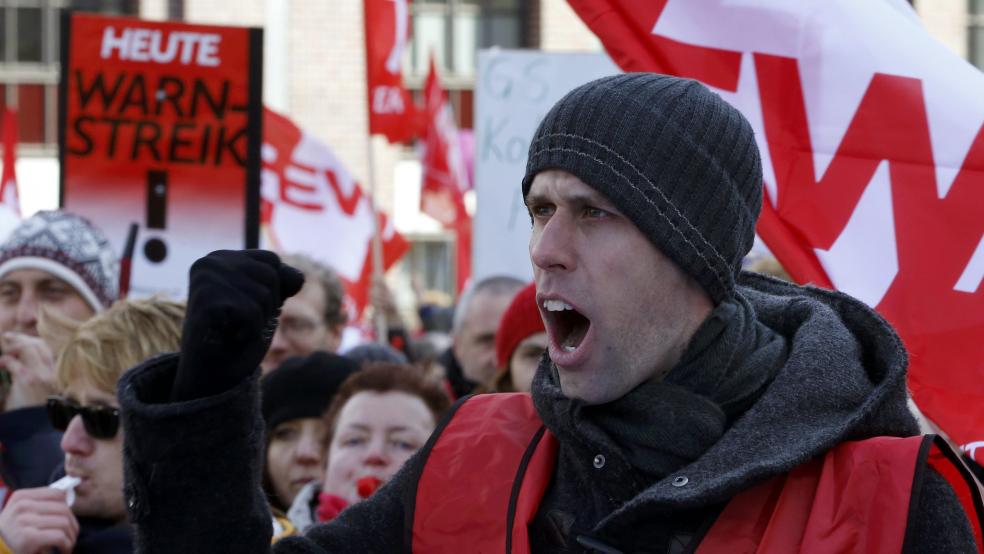STUTTGART (Reuters) - Powerful German union IG Metall has called for all-day walkouts by industrial workers across the country next week, hampering the production of cars, car parts and machinery, after last-ditch regional labor talks failed to reach a deal.
"We have to step up the pressure on employers in the coming days so that they show some willingness to compromise," IG Metall chief Joerg Hofmann told journalists in a news conference on Saturday.
IG Metall said it saw no point in further talks during the planned walkouts, but said it was in principle willing to resume negotiations if employers showed a willingness to make concessions.
If not, the union's leadership will prepare to ballot workers for extended strikes that could hit Germany's industrial output.
Nearly a million workers have already taken part in short walkouts across the country this month to support IG Metall's demands for higher pay and the right to shortened working hours, but employers have warned that 24-hour strikes could pose a serious risk to companies.
"Twenty-four hour strikes would indeed be painful," a spokesman for BMW
said ahead of the latest round of talks, adding extended walkouts could disrupt production not only at the carmaker but also at suppliers.Three hours of stoppages at BMW's Munich factory on Wednesday resulted in 250 cars not being assembled, it said.Premium rival Audi, owned by Volkswagen, also said it was trying to catch up after around 700 vehicles were not assembled as a result of two stoppages at its Ingolstadt and Neckarsulm factories this week.RECORD GROWTH SPURS DEMANDSIG Metall's call for all-day strikes comes after union leaders and employers in the southwestern state of Baden-Wuerttemberg, home to companies such as Mercedes-Benz maker Daimler and sports car firm Porsche , failed to reach agreement in 16 hours of talks overnight.Emboldened by the fastest economic growth in six years and record low unemployment, IG Metall is demanding an 8 percent pay rise for 3.9 million metals and engineering workers across Germany for 27 months.It has also asked for workers to be given the right to reduce their weekly hours to 28 from 35 to care for children, elderly or sick relatives, and return to full time after two years.It said on Saturday it had offered concessions to employers in the latest round of talks, proposing a flexible model allowing workers to choose between extra money and time off.Employers have offered a 6.8 percent increase but have rejected the demand for shorter hours unless they can also increase workers' hours when necessary."The union kept coming with new ideas that drove up the price more and more," regional employers' association Suedwestmetall said.IG Metall, meanwhile, blamed the employers for the lack of a deal, saying they had gotten lost in details during the talks rather than seeking agreement on the major issues.This is IG Metall's first major push for shorter hours since workers staged seven weeks of strikes in 1984 to help push through a cut of the working week to 35 hours from 40 hours.Any deal in Baden-Wuerttemberg would typically be applied in other German states as well. (Reporting by Ilona Wissenbach; Writing by Maria Sheahan; Editing by Andrew Bolton and Mark Potter)



